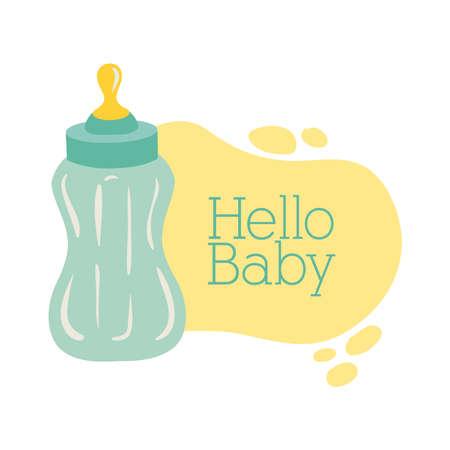1. Why Prenatal Vitamins Matter
During pregnancy, your body goes through significant changes to support the growth and development of your baby. Eating a balanced diet is essential, but sometimes it’s hard to get all the necessary nutrients from food alone. That’s where prenatal vitamins come in—they help fill in nutritional gaps and ensure both you and your baby are getting what you need.
Key Benefits of Prenatal Vitamins
Prenatal vitamins provide essential nutrients that support a healthy pregnancy. Here are some key benefits:
- Supports Baby’s Development: Nutrients like folic acid, iron, and DHA play a crucial role in brain, spinal cord, and overall fetal development.
- Prevents Deficiencies: Pregnancy increases your body’s demand for certain vitamins and minerals. Taking a prenatal supplement helps prevent deficiencies that could impact both you and your baby.
- Reduces Birth Defect Risks: Folic acid is known to significantly reduce the risk of neural tube defects when taken before and during early pregnancy.
- Boosts Maternal Health: Nutrients like calcium and vitamin D help maintain strong bones, while iron supports increased blood volume to prevent anemia.
Essential Nutrients in Prenatal Vitamins
Prenatal vitamins contain a mix of important vitamins and minerals. Here’s a breakdown of some of the most crucial ones:
| Nutrient | Why It’s Important |
|---|---|
| Folic Acid | Helps prevent neural tube defects and supports brain development. |
| Iron | Aids in red blood cell production to prevent anemia. |
| DHA (Omega-3 Fatty Acids) | Supports brain and eye development in the baby. |
| Calcium | Keeps bones strong for both mom and baby. |
| Vitamin D | Aids in calcium absorption and immune function. |
| Iodine | Supports thyroid function and brain development. |
| B Vitamins | Help with energy production and brain function. |
Prenatal vitamins are an easy way to ensure you’re meeting your nutritional needs during pregnancy. Choosing the right one can make a big difference in both your health and your baby’s growth. Always consult with your healthcare provider to find the best prenatal supplement for you.
2. Key Nutrients Every Mom-to-Be Needs
During pregnancy, your body needs extra support to help your baby grow and develop. Certain vitamins and minerals play a crucial role in keeping both you and your little one healthy. Here are the key nutrients every expecting mom should focus on:
Folic Acid: Essential for Baby’s Neural Development
Folic acid (or folate in its natural form) is one of the most important nutrients during pregnancy. It helps prevent neural tube defects, which affect the brain and spine.
Recommended Amount
- Before and during early pregnancy: 400–600 mcg per day
- For higher-risk pregnancies: Your doctor may recommend up to 1,000 mcg per day
Best Sources
- Prenatal vitamins
- Leafy greens (spinach, kale)
- Citrus fruits (oranges, lemons)
- Fortified cereals and bread
Iron: Supports Blood Production
Your body needs more iron during pregnancy to support increased blood volume and prevent anemia.
Recommended Amount
- Prenatal daily intake: 27 mg per day
Best Sources
- Prenatal vitamins with iron
- Lean red meat, poultry, and fish
- Lentils and beans
- Dark leafy greens
- Fortified grains and cereals
Calcium: Strengthens Bones and Teeth
Your baby’s bones and teeth are developing rapidly, making calcium an essential nutrient.
Recommended Amount
- Prenatal daily intake: 1,000 mg per day (1,300 mg for teens)
Best Sources
- Dairy products (milk, yogurt, cheese)
- Kale and broccoli
- Soy-based foods (tofu, fortified soy milk)
- Prenatal supplements if needed
DHA: Supports Brain and Eye Development
DHA (docosahexaenoic acid) is an omega-3 fatty acid that plays a key role in your baby’s brain and eye development.
Recommended Amount
- Prenatal daily intake: 200–300 mg per day
Best Sources
- Prenatal vitamins with DHA
- Fatty fish (salmon, sardines, anchovies)
- DHA-fortified eggs and dairy products
- A plant-based DHA supplement if needed
Nutrient Summary Table
| Nutrient | Recommended Daily Intake | Main Sources |
|---|---|---|
| Folic Acid | 400–600 mcg | Prenatal vitamins, leafy greens, citrus fruits, fortified cereals & bread |
| Iron | 27 mg | Prenatal vitamins with iron, lean meats, beans, dark leafy greens, fortified grains & cereals |
| Calcium | 1,000 mg (1,300 mg for teens) | Dairy products, kale, broccoli, soy-based foods, supplements if needed |
| DHA | 200–300 mg | Prenatal vitamins with DHA, fatty fish, DHA-fortified eggs & dairy products, plant-based supplements if needed |
Moms-to-be need these essential nutrients to ensure a healthy pregnancy. Talk to your healthcare provider about your specific needs and how to get the right balance of vitamins and minerals through diet and supplementation.

3. Choosing the Right Prenatal Supplement
Selecting a high-quality prenatal vitamin is essential for supporting your babys development and maintaining your own health during pregnancy. With so many options available, it can feel overwhelming to choose the right one. Here’s how you can find a prenatal supplement that fits your nutritional needs and lifestyle.
Key Nutrients to Look For
A good prenatal vitamin should include essential nutrients that support both you and your growing baby. Below is a breakdown of key vitamins and minerals to look for:
| Nutrient | Why Its Important | Recommended Amount |
|---|---|---|
| Folic Acid (Folate) | Helps prevent neural tube defects | At least 400-800 mcg per day |
| Iron | Supports red blood cell production and prevents anemia | 27 mg per day |
| Calcium | Aids in fetal bone and teeth development | 1,000 mg per day |
| DHA (Omega-3) | Supports brain and eye development | 200-300 mg per day |
| Vitamin D | Aids calcium absorption and supports immune function | 600 IU per day |
| Iodine | Aids in fetal brain development and thyroid function | 150 mcg per day |
| B Vitamins (B6, B12) | Support energy production and reduce nausea | B6: 1.9 mg, B12: 2.6 mcg per day |
| Zinc | Aids in cell growth and immune function | 11 mg per day |
Pill, Gummy, or Liquid? Choosing the Right Form for You
Prenatal vitamins come in different forms, so its important to choose one that fits your preferences and lifestyle:
- Pills/Tablets: Typically contain the most complete set of nutrients but may be harder to swallow.
- Gummies: Easier to take but often lack iron, which is crucial during pregnancy.
- Liquids: A good option if you have trouble swallowing pills, but they may have a strong taste.
- Powders: Can be mixed into drinks or smoothies but might not provide all essential nutrients.
Selecting a Trusted Brand
The quality of prenatal vitamins varies by brand. When selecting a supplement, consider these factors:
- Labeled as “Prenatal”: Ensure the product is specifically formulated for pregnancy.
- No Harmful Additives: Avoid artificial colors, sweeteners, or unnecessary fillers.
- Certain Certifications: Look for certifications like USP Verified or NSF Certified for quality assurance.
- Your Doctor’s Recommendation: Always consult your healthcare provider before starting any new supplement.
Lifestyle Considerations When Choosing a Prenatal Vitamin
Your personal lifestyle choices may also influence which prenatal vitamin is best for you:
- If You’re Vegetarian or Vegan: Look for plant-based sources of DHA and ensure adequate B12 intake.
- If You Have Morning Sickness: Choose a vitamin with added B6 to help reduce nausea.
- If You Have Dietary Restrictions or Allergies: Check labels for gluten-free, dairy-free, or allergen-friendly options.
- If You Prefer Fewer Pills: Some brands offer once-daily formulas instead of multiple doses throughout the day.
The Importance of Consistency
No matter which prenatal vitamin you choose, taking it consistently is key. Set reminders on your phone or pair it with an existing routine (like breakfast) to make it easier to remember. If you experience side effects like nausea or constipation, talk to your doctor about adjusting your dosage or switching brands.
Selecting the right prenatal supplement doesn’t have to be complicated. By focusing on key nutrients, choosing a form that works for you, and considering quality and lifestyle factors, you can confidently find the best option for a healthy pregnancy journey.
4. Natural vs. Synthetic Supplements: What’s Best?
When choosing prenatal vitamins, you may wonder whether natural or synthetic supplements are better for you and your baby. Both types have their advantages and drawbacks, so understanding the differences can help you make an informed decision.
What Are Natural and Synthetic Prenatal Vitamins?
Natural Prenatal Vitamins
Natural prenatal vitamins come from whole food sources and are minimally processed. They often contain nutrients derived from fruits, vegetables, and other plant-based ingredients.
Synthetic Prenatal Vitamins
Synthetic prenatal vitamins are made in a lab to mimic naturally occurring nutrients. They are typically more affordable and widely available.
Pros and Cons of Natural vs. Synthetic Prenatal Vitamins
| Natural Prenatal Vitamins | Synthetic Prenatal Vitamins | |
|---|---|---|
| Absorption | Easier for some people to digest and absorb because they come from whole food sources. | May be harder for some to absorb, but they provide consistent nutrient levels. |
| Nutrient Content | Often contain additional beneficial compounds found in whole foods. | Tend to have precise dosages of key vitamins like folic acid and iron. |
| Additives | No artificial colors, preservatives, or fillers. | May contain additives to improve shelf life or absorption. |
| Cost | Usually more expensive due to the sourcing and processing of whole-food ingredients. | Typically more affordable and widely available. |
| Sourcing | Sourced from organic or natural ingredients with minimal processing. | Synthetically created in a lab for consistency and availability. |
| Taste & Size | Larger pills or different forms (powders, gummies) that may have a stronger taste. | Tend to be smaller and easier to swallow with neutral flavors. |
The Best Choice for Your Pregnancy Needs
The best prenatal vitamin depends on your bodys needs, dietary preferences, and budget. If you prefer whole-food-based nutrition and want to avoid synthetic additives, natural prenatal vitamins might be a good choice. However, if you need specific nutrients in precise amounts at an affordable price, synthetic options can still provide excellent support for your pregnancy.
A Few Tips for Choosing the Right Supplement
- Check the Label: Look for key nutrients like folate (or folic acid), iron, calcium, and DHA.
- Consider Your Diet: If you already eat a nutrient-rich diet, you may not need a supplement with extra whole-food ingredients.
- Tolerability Matters: Some women find natural vitamins easier on the stomach, while others prefer the smaller size of synthetic pills.
- Speak With Your Doctor: Always consult your healthcare provider before making a final decision on prenatal supplements.
No matter which type of prenatal vitamin you choose, the most important thing is ensuring you’re getting the essential nutrients needed for a healthy pregnancy journey.
5. Common Myths and Misconceptions About Prenatal Vitamins
When it comes to prenatal vitamins, theres a lot of misinformation out there. Some myths can cause unnecessary stress for expecting moms, while others might lead to poor choices regarding nutrition. Let’s break down some of the most common misconceptions and look at the facts.
Myth 1: All Prenatal Vitamins Are the Same
Many people believe that all prenatal vitamins are identical, but thats not true. Different brands contain varying amounts of essential nutrients like folic acid, iron, and DHA. Its important to choose one that meets your specific nutritional needs.
Myth 2: You Don’t Need Prenatal Vitamins If You Eat a Healthy Diet
While a balanced diet is crucial during pregnancy, it may not provide all the necessary nutrients in the right amounts. For example, folic acid is essential in preventing neural tube defects, and it can be difficult to get enough from food alone.
Myth 3: More Is Always Better
Some believe that taking extra vitamins will benefit their baby even more. However, excessive intake of certain nutrients—like vitamin A—can actually be harmful. Always follow your healthcare provider’s recommendations.
Myth 4: Prenatal Vitamins Cause Nausea
Some women experience nausea after taking prenatal vitamins, but this is often due to iron content or taking them on an empty stomach. Switching to a different brand or taking them with food can help reduce discomfort.
Myth 5: You Can Stop Taking Prenatal Vitamins After the First Trimester
Prenatal vitamins are beneficial throughout pregnancy and even while breastfeeding. Key nutrients like calcium, iron, and DHA continue to support both mom and baby beyond the first trimester.
Breaking Down Fact vs. Fiction
| Myth | Fact |
|---|---|
| You don’t need prenatal vitamins if you eat well. | A healthy diet helps, but supplements ensure you get key nutrients like folic acid and iron. |
| Prenatal vitamins make you gain weight. | The vitamins themselves do not cause weight gain—pregnancy-related changes do. |
| You only need folic acid in early pregnancy. | Nutrients like iron, calcium, and DHA remain important throughout pregnancy. |
| Taking more vitamins means a healthier baby. | Too much of certain nutrients can be harmful; always follow recommended dosages. |
Prenatal vitamins play a vital role in supporting a healthy pregnancy. By understanding the facts and ignoring common myths, you can make informed decisions that benefit both you and your baby.
6. When and How to Take Prenatal Vitamins for Maximum Benefit
Taking prenatal vitamins at the right time and in the right way can make a big difference in how well your body absorbs the nutrients. Here’s what you need to know to get the most out of your prenatal supplements.
When Should You Start Taking Prenatal Vitamins?
The best time to start taking prenatal vitamins is before you conceive. Ideally, you should begin at least one month before trying to get pregnant. This ensures that your body has enough essential nutrients, like folic acid, which helps prevent neural tube defects in the early stages of pregnancy.
How to Take Prenatal Vitamins Without Feeling Nauseous
Morning sickness can make it difficult to take prenatal vitamins, but there are ways to minimize nausea:
- Take them with food: Having a small meal or snack when taking your vitamin can help reduce stomach discomfort.
- Avoid taking them on an empty stomach: Some vitamins, especially iron, can cause nausea if taken without food.
- Try different times of the day: If mornings make you feel sick, try taking your vitamins in the afternoon or evening.
- Switch to gummy or liquid vitamins: If swallowing pills is difficult, gummy or liquid prenatal vitamins may be easier on your stomach.
Maximizing Absorption for Better Results
The way you take your prenatal vitamins can affect how well your body absorbs the nutrients. Here are some tips for better absorption:
| Nutrient | Best Way to Take It |
|---|---|
| Iron | Take with vitamin C (like orange juice) to improve absorption. Avoid calcium-rich foods or supplements at the same time. |
| Calcium | Take separately from iron supplements for better absorption. |
| DHA (Omega-3) | Take with a meal that contains healthy fats for better absorption. |
| Folic Acid | This is usually well-absorbed on its own but works best when taken consistently each day. |
Trouble Swallowing Pills? Try These Alternatives
If youre struggling with large prenatal pills, consider these options:
- Prenatal gummies (make sure they contain folic acid and DHA)
- Prenatal liquids or powders that can be mixed into drinks
- Splitting larger pills into smaller doses throughout the day
The Key to Consistency
The most important thing is to take your prenatal vitamins regularly. Setting a reminder on your phone or keeping them near something you use daily, like your toothbrush, can help you stay on track. Your baby depends on these essential nutrients, so making them part of your routine is one of the best things you can do for a healthy pregnancy.


